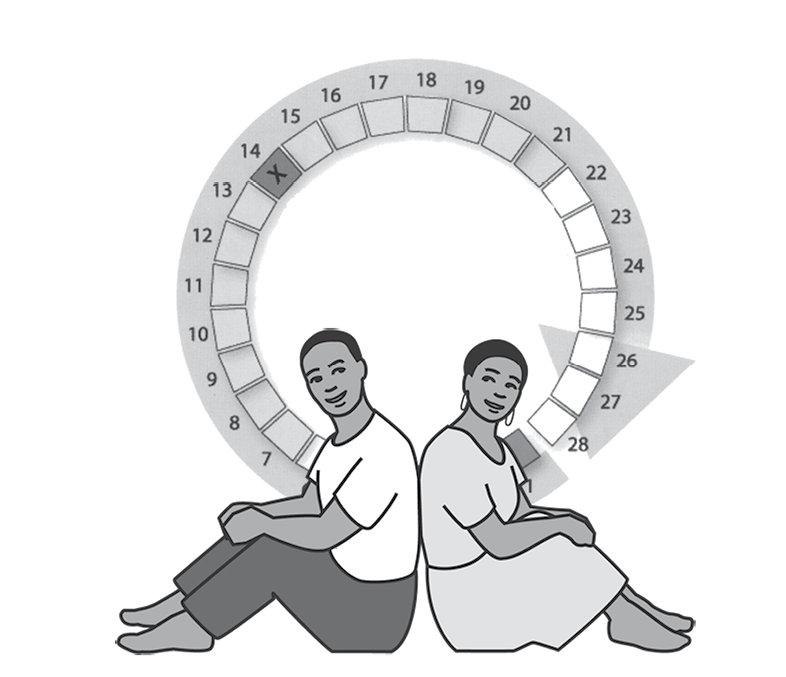Chapter 18 Download Chapter
Supporting New and Continuing Users
"Come Back Any Time": Reasons to Return
No routine return visit is required. Providers should invite a woman or couple to meet with them a few times during the first few cycles if they want more help. Assure every client that she is welcome to come back any time—for example, if she has problems, questions, or wants another method; she has any major change in health status; or thinks she might be pregnant. Also if:
- She is having difficulty identifying her fertile days.
- She is having trouble avoiding sex or using another method on the fertile days. For example, her partner does not cooperate.
Helping Clients at Any Visit
- Ask clients how they are doing with the method and whether they are satisfied. Ask if they have any questions or anything to discuss.
- Ask especially if they are having difficulty identifying her fertile days or trouble avoiding unprotected sex on the fertile days.
- Check whether the couple is using the method correctly. Review observations or records of fertility signs. If needed, plan for another visit.
- Ask a long-term client if she has had any new health problems since her last visit. Address problems as appropriate.
- Ask a long-term client about major life changes that may affect her needs—particularly plans for having children and STI/HIV risk. Follow up as needed.